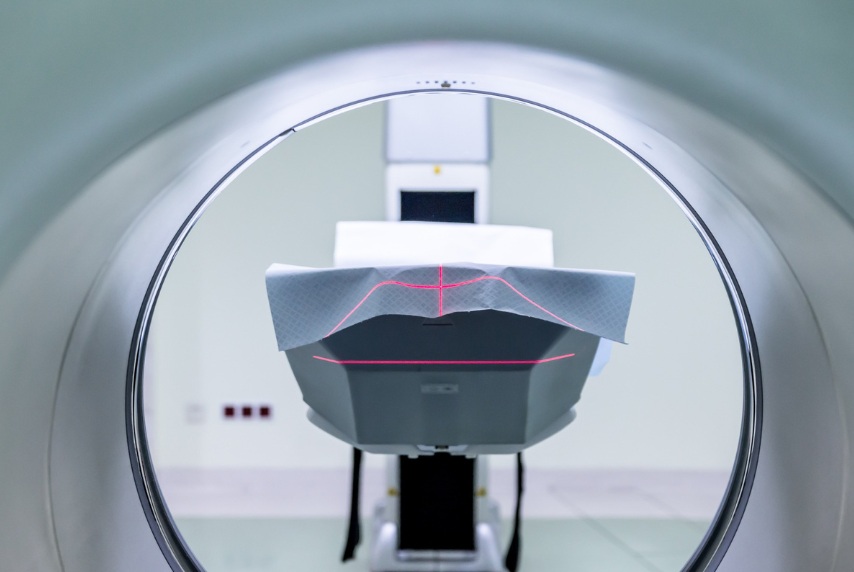Category: Research
-

We need to hear from you: Help shape our response to NICE’s draft decision on vorasidenib
NICE has decided not to recommend vorasidenib for use in England. But, this drug could have huge effects on quality of life. We need your help in turning their no into a yes. Find out how!
-

Early warning sign of aggressive brain tumours could help tailor treatment
Researchers have pinpointed a new biomarker that could help doctors more accurately predict the behaviour of meningiomas.
-

Vorasidenib – a promising new drug to treat low grade gliomas
An international phase 3 clinical trial has shown that vorasidenib could be a new targeted treatment for those diagnosed with a low grade glioma.
-

AI diagnosis: Our latest research funding collaboration
For the first time, The Brain Tumour Charity has collaborated with the Grace Kelly Childhood Cancer Trust as a funding partner, investing nearly £50,000 into research on paediatric brain tumours.
-

We’re joining forces with Eva’s Angels!
We’re excited to announce a new partnership with Eva’s Angels to help accelerate cures for children diagnosed with high grade brain tumours.
-

Research reveals new therapeutic target to treat brain cancer
Future Leader Dr Ángel Álvarez-Prado has discovered that blocking a particular protein can both reduce GBM cells’ ability to multiply and kickstart the immune system.
-

Announcing our first funding awards for translational research
We’re excited to announce our investment of nearly £1.2 million into new translational research projects that aim to speed up the journey from lab discoveries to clinical treatment.
-

Encouraging the brightest minds to study brain tumours
We brought together our Future Leaders, supporters who help to fund them, and volunteers with lived experience of brain tumours.
-

Shaping tomorrow: Future Leaders in focus
For the first time, The Brain Tumour Charity hosted a two-day event which brought together all 13 researchers that have been funded by our Future Leaders programme.
-

Speeding up brain tumour diagnosis through the Cancer Tech Accelerator
As part of the Cancer Tech Accelerator, we’ve awarded £70,000 to help develop liquid biopsies that could speed up brain tumour diagnosis.
-

New research funding to improve quality of life
The Brain Tumour Charity is proud to announce £380,000 of new funding into quality of life research projects.
-

New test could provide molecular diagnosis of a brain tumour in as little as two hours
A new test developed at the University of Nottingham has the potential to reduce the time it takes to molecularly diagnose brain tumour biopsies from 6-8 weeks to as little as two hours.
-

Announcing our latest funding collaboration with Worldwide Cancer Research
The Brain Tumour Charity has partnered with Worldwide Cancer Research to co-fund research into Diffuse Midline Glioma (DMG), investing £160,000 as part of a joint £400,000 commitment to tackle this devastating childhood brain cancer.
-

“It fills me with hope to hear and see first-hand how much effort is being poured into research by scientists.”
In this guest blog post, three of our Young Ambassadors – Emma L, Francesa and Emma H – have come together to share how they’ve been involved in different areas of research.
-

Consortium to build sustainable pipeline of trials for new brain tumour therapies
A brain tumour consortium, funded by the National Institute for Health and Care Research (NIHR), with the vision to make the UK a “testbed for oncology innovation by accelerating the development of treatments for patients with brain tumours” is being developed and is aiming for real progress in “the soonest time frame possible.”
-

Future Leader Spotlight: Dr Ángel Álvarez-Prado
Our Future Leader, Dr Ángel Álvarez-Prado, is now leading his own research group at the Luxembourg Institute of Health.
-

Giving the Brain Tumour Community a Voice in Research
At The Brain Tumour Charity, we are committed to ensuring that the voices of those directly affected by brain tumours are at the heart of everything we do. This is why, in 2024, we established a new Lay Advisory Board to help us fund the best possible research.
-

Improving immunotherapy for brain tumours
Immunotherapy is revolutionising cancer care, but progress for brain tumours lags behind. This is why we’re funding state-of-the-art research aiming to improve immunotherapies for brain tumours.
-

Fuelling discovery: our latest Expanding Theories grant awardees
We are pleased to introduce two more researchers who have been awarded our latest Expanding Theories grant!
-

An update from Petra Hamerlik, The Brain Tumour Charity’s Chair of Translational Neuro-oncology
In 2022, Professor Petra Hamerlik was appointed as The Brain Tumour Charity’s Chair of Translational Neuro-oncology, at the University of Manchester’s Cancer Research Centre.
-

Mapping glioblastoma spread for more effective treatments
Research we’re funding in partnership with The Oli Hilsdon Foundation at University College London is using advanced brain mapping to reveal how glioblastoma spreads and resists treatment, providing insight for potential new treatments.
-

Our Research Highlights of 2024
This year has been an exciting year for our research. Read more as we share some of 2024’s best bits.
-

“It’s a delicate dance” – the impact of caring for someone with a lower-grade glioma
Caring for someone with a lower-grade glioma has a profound impact on the lives of carers. The Ways Ahead Project aims to better understand this to inform the best ways to support those affected.
-

“Investment in research is vital, to encourage bright minds to ask new questions, and challenge existing ones around glioblastomas.”
Involvement volunteer Baljit Ahluwalia lost her mother, Harbans Kaur Walia, to glioblastoma in 2020.